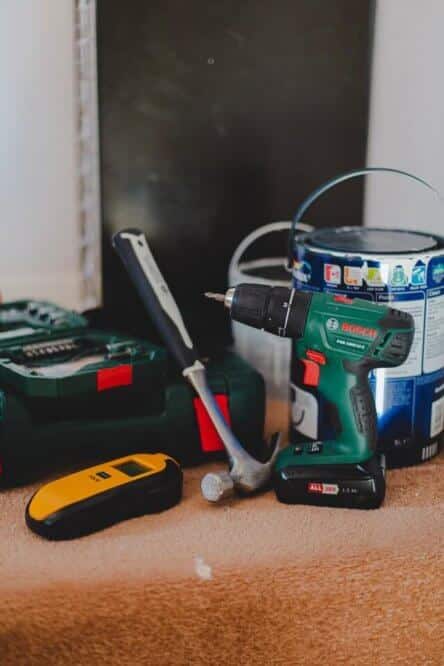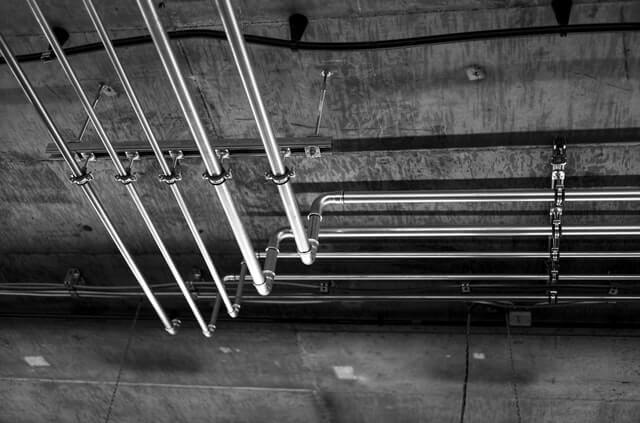Starting off on a slightly grim note, but did you know that accidental death is the third biggest cause of death in America? An even grimmer statistic is the fact that about 75% of those deaths occur inside their own household. An easy way to prevent yourself (and your family) from becoming a part of that statistic is simply by installing a gas leak detector. But does a carbon monoxide detector detect natural gas? What is the best natural gas detector?
Questions like these must be going through your head right. Worry not, because here, we are going to go over what a gas leak detector does, what is the best carbon monoxide and gas detector is and we will hopefully give you the answer to your question: “Do I need a natural gas detector?”. (Spoiler alert: Yes, you do!)
What does a carbon monoxide detector do?
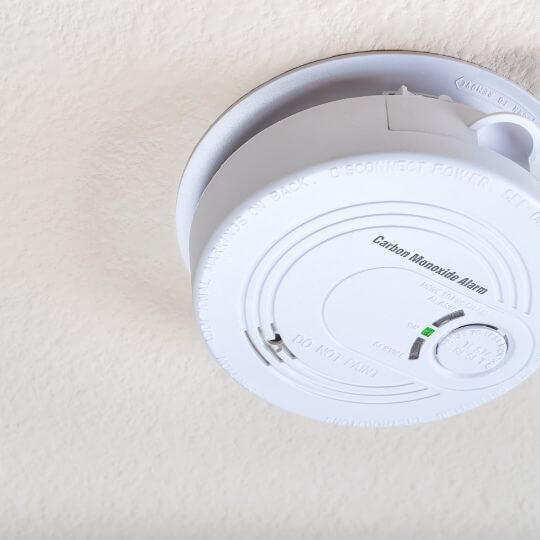
As the name clearly states, a carbon monoxide detector detects the amount of carbon monoxide in the air. In order to understand how important this is, we first need to remind ourselves what carbon monoxide is and why it’s so dangerous.
Carbon monoxide is a gas that is colorless, tasteless, and odorless. It’s highly flammable, and there is no way for a human to detect it until they start feeling sick, dizzy, and/or confused. If you are not sure if you have anything that could be a source of carbon monoxide, you might want to think again because you most definitely do.
This toxic and dangerous gas is produced whenever a material is set on fire. Meaning that whenever you are using a fuel-burning appliance or device, the carbon monoxide levels can potentially go up.
Here is a small list of some of the appliances that produce carbon monoxide: furnaces, boilers, gas stoves, ovens, clothing dryers, water heaters, generators, grills, wood stoves, and the list goes on. If you have an attached garage, the chances of getting carbon monoxide poisoning are, sadly, even higher.
The human nose is powerful; being able to detect more than one trillion scents.
Does a carbon monoxide detector detect natural gas?
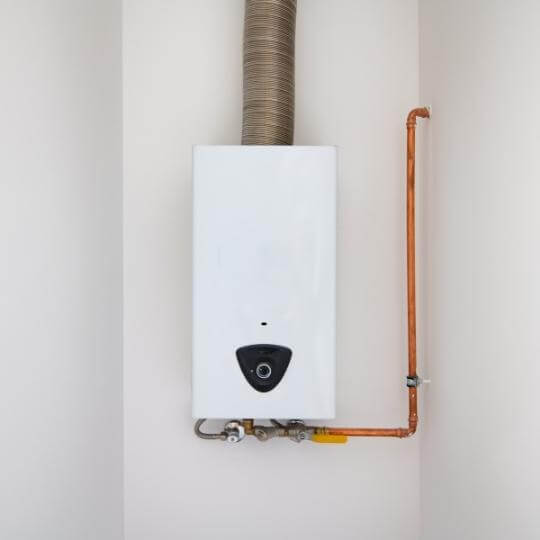
To summarize the answer quickly – no, it doesn’t. A carbon monoxide detector detects carbon monoxide. These two are similar in a sense, but they are very different gasses. Hereby answering the question “Do I need a natural gas detector?”… Yes. You need that one, too. Ideally, you would want to get a detector that doesn’t just detect carbon monoxide, since there are gas detectors that detect more than just gas or carbon monoxide.
If possible, see what your options are in regards to getting a 3 in 1 smoke, carbon monoxide, and natural gas alarm. You might want to do some extra research and find what the best carbon monoxide and gas detector is for your desired price range. The gas detectors that can detect more than one gas are called multi-gas detectors, while those that can only detect one are called single-gas detectors.
When choosing the gas detector of your choice, you might also want to consider whether you (and your household) might prefer a fixed or a portable gas detector. Both have their advantages and disadvantages. Portable gas detectors usually cost less than a fixed gas detector system.
If the area where you need gas detection the most needed is small and cramped, a fixed gas system probably isn’t the way that you want to go. Some portable gas detectors, however, are a bit trickier to use. You might need some training to ensure that you are using the portable gas detector properly in order to assure that your household is safe.
Once the gas detector detects gas, it will notify you through a series of audible or visual indicators. The audible indicator is an alarm that will go off continuously or periodically. The visual indicator is a light that will, most commonly, start to blink.
Some gas leak detectors will first queue the visual alarm and then start the audible alarm. Before purchasing your gas leak detector of choice, it is important to find out how to notify you of dangerous gas levels.
Natural gas detector and carbon monoxide detector – here’s the difference
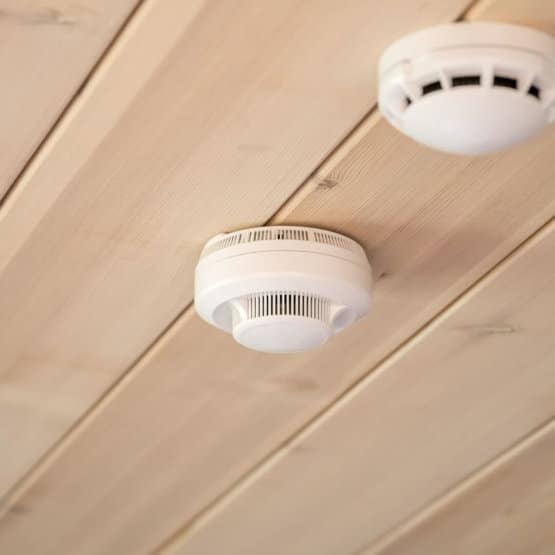
You already know the answer to “what does a carbon monoxide detector do?”, but do you know why you need a natural gas detector for your home? Natural gas, although it’s also a highly flammable gas and widely used in homes all across the world, is a different gas from carbon monoxide.
Two forms of natural gas are most commonly used. The first one is compressed natural gas, and the second one is liquefied natural gas. Compressed natural gas is the one that is most often present in our homes.
Some examples of the places where we will find natural gas are fireplaces, heating and cooling systems, ovens and stoves, dryers, and grills.
While carbon monoxide doesn’t have a smell, and we first start feeling symptoms similar to the flu; with natural gas, there is a very specific telltale sign that tells us that it’s time to leave the premises and call emergency services. That’s the smell of rotten eggs.
Once you even catch yourself wondering whether or not you are smelling rotten eggs, it’s time to go.
What to do instead of Googling “Does a carbon monoxide detector detect natural gas?”
Some of the things that you can do in order to prevent the possibility of getting carbon monoxide poisoning are to have regular checkups of your heating system, to make sure that your home is properly ventilated, as well as have a carbon monoxide and natural gas detector for home-safety.
This gas can make you feel dizzy, but it’s not nearly as toxic as carbon monoxide. The most important thing is to leave your home and not light up any kind of fire. Even lighting a cigarette could endanger your life severely. The first symptoms of carbon monoxide poisoning are said to be similar to symptoms of the flu.
However, the longer that you are exposed and breathing in the gas, the higher the chances of getting brain damage and at times even death.
Natural gas and carbon monoxide detector: which one to buy?
Now that you know all there is to know about gas leak detectors, you won’t need to wonder “does a carbon monoxide detector detect natural gas” or not. If there was a diploma for mastering gas detectors, you would have it framed and hanging on your wall right now.
Gas leak detectors are proven lifesavers. Once a human is able to detect that there might be a leak somewhere, it’s usually already too late. Do not risk any kind of gas poisoning by investing in the right gas leak detector.
It would be best if you bought a multi-gas detector instead of a single-gas detector if you are buying one for your household. If you already have one of the gas leak detectors, it’s also important to get them checked every once in a while.
Why? Well, because they are also susceptible to aging and environmental influences that cause them to work with less efficiency. If you have a gas detector, when was the last time that you got it checked?
Another important thing to know is that gas leak detectors operate on batteries. Meaning that you will still be alerted if there is any leakage even if the power is out. However, you still need to check up if the batteries are charged.
Most will give you some kind of sign if the batteries are running low. It is important to note that some fixed gas leak detectors do require the main power supply, so make sure that you ask about how your gas leak detector of choice needs to be powered.

Michael Davis is a heating & plumbing expert who currently works as independent contractor in SC. He also writes for Plumbertip.
For almost 10 years he worked on various plumbing tasks across South Carolina.
